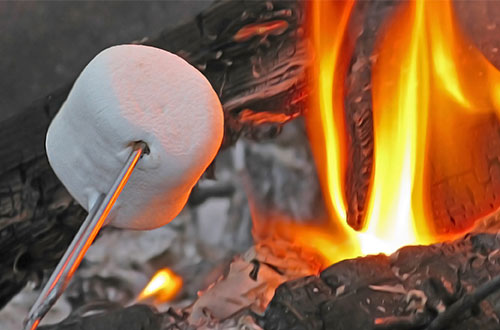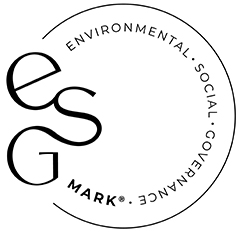Welcome to the November edition of our monthly VAT update, including a selection of news and updates relating to the world of VAT.
Uber costly
We reported earlier in the year that Uber was in ‘discussions’ with HMRC about its VAT status.
This is another: ‘who’s supplying who?’ Uber argued that the drivers were self-employed and therefore any supplies were made independently of Uber; with Uber only liable for VAT on commission fees earnt.
HMRC argued that the supplies of the transport were seen by the user as a supply by Uber. The issue of who’s supplying who was initially for licencing and contractual obligations rather than tax.
In late 2021, the High Court ruled that Uber was seen as the party with whom the passenger had contracted. As the supplier - rather than an introductory agent - the issue of who paid the VAT then became Uber important.
Uber said that it has started charging VAT on rides from early 2022. The payment that Uber has made to HMRC - £615 million - is to ‘resolve all outstanding VAT claims’.
Undoubtedly HMRC will have added impetus to challenge business set ups where a party has defined themselves as an agent rather than principal; especially where there’s a perceived revenue loss – here drivers below the VAT registration threshold, so no VAT on rides.
S'more confusion: tribunal confirms giant marshmallows are not confectionery
The VAT liability of food stuffs is a thing of wonder, resulting in not only the ‘famous’ Jaffa Cake case, but also questions of how many chocolate buttons a gingerbread man’s coat has and if certain foods require cutlery or not.
A recent case concerns the sale of Mega Marshmallows. HMRC ruled that they were confectionery and so subject to VAT. The distributor said that the product was designed and held out for sale as a product for toasting on an open fire before being eaten or placed within digestive biscuits to create S’mores, an American campfire treat.
The product stated that it was ‘perfect for roasting’ and had a cartoon chef character on the packet referred to as a ‘baking buddy’.
The tribunal understood the reasoning for HMRC to see it as confectionery but ruled that:
- The product was designed to be put on a stick and roasted (not eaten using fingers)
- Is subjected to further preparation; and
-
Is found in the barbeque section (summer) or the world food aisle (rest of the year) and not the confectionery section.
So, the tribunal ruled it that Mega Marshmallows are not confectionery and so zero-rated.
Taxi!: what is the penalty for underdeclaring VAT?
A director of a taxi firm underdeclared VAT due on sales by nearly £780,000 - mainly payments from local authorities. The court agreed with HMRC that this was a deliberate act by the director as a responsible officer of the company and sentenced the individual to six years in prison, as well as barring them from being a director for seven years.
HMRC is highlighting cases where the retribution for the sins of the VAT registered entity are visited on the responsible officers of that entity.
VAT rules on liquidated companies
Since the end of the transition period, HMRC and the tax tribunals are not obligated to follow rulings from the European Court of Justice (ECJ); but they can refer to judgments to assist in determining the correct VAT interpretation. Therefore, EU rulings are still reported on the basis that they may influence UK cases.
One case that may be looked at by HMRC relates to a Latvian company that was set up to develop, manufacture and market a medical product. After several years of recovering VAT on associated costs for goods and services (on the basis that they will relate to eventual taxable supplies) the sole shareholder decided to put the business into liquidation.
The Latvian authorities issued an assessment to recover the VAT claimed. The ECJ agreed with the Latvian authorities, the business should have ‘adjusted’ (i.e. paid back) the input tax originally claimed once it realised it was being liquidated; so, the VAT could not relate to a future taxable supply.
Those that know their VAT cases will instantly think of Rompleman, Ghent Coal and INZO), which established the principal for an intending trader’s right to recover VAT, even if the envisaged taxable supply did not materialise. Even last month we reported on an attempt by HMRC to recover input tax claimed by an intending trader that failed (as the intent to make taxable supplies remains).
Whilst the principal remains, the key issue here is that the change that prevents the taxable person making a taxable supply needs to be beyond their control. Was the act of the single shareholder placing the company into liquidation, and apply for VAT deregistration, ‘beyond their control’?
The court decided it was not and thus the VAT incurred was repayable.
Micky and Minnie masks: zero-rate on children's face coverings
Only 30 months after the first lockdown, HMRC has issued guidance to say that face coverings clearly designed for use by under 14s are zero-rated as children’s clothing.
Businesses that accounted for VAT in the past may want to review historic VAT treatment.
Constructive knowns
One of the rules regarding assessments issued by HMRC is that HMRC has 12 months from having the necessary information to raise an assessment to actually do so. A number of cases have been lost by HMRC where a review of the facts shows that the 12-month time limit had been exceeded.
In this case, the taxpayer was an optician business. For VAT, this means a combination of taxable (the physical spectacles) and exempt (the services of health professionals in assessing the type of lenses required) supplies, so the business is partially exempt.
The taxpayer had a number of challenges for HMRCs actions including that assessments were out of time. The court decided that whilst HMRC did know ‘something was wrong’ (a constructive known) more than 12 months prior to the assessment being issued, they only had the information to quantify the error a month before the assessment was issued.
However, it’s an important point to bear in mind, especially with an overstretched department, to ensure that HMRC has met its deadlines.
Default surcharge regime fault
The default surcharge regime is coming to an end. VAT returns starting on or after the 1 January 2023 will be subject to the new penalty regime.
However, HMRC is still writing to tax payers with default surcharge issues for returns in 2022, stating that the surcharge liability period will end in mid/late 2023 (i.e. 12 months after the period in which the current default occurred).
This is incorrect - the default surcharge regime will cease to be on 31 December 2022.
Whilst the new penalty regime sees a points based system where, once the points threshold is reached, a fixed penalty of £200 per each subsequent late return/payment will be payable, interest will also be calculated and charged.
It’s important to note that the new regime will see the £200 fine being imposed for nil or repayment returns that are late, unlike the surcharge which is a percentage of the net VAT due.
Claiming input tax: prove it
Those with long memories may remember the ‘golden hour’ of VAT reclaims in 2008/9, post the ‘Fleming case’ (an Aston Martin dealer related to Ian Fleming). Claims for input tax could go back as far as 1974. This month, the Supreme Court has released its decision of such a claim first submitted in 2009.
The taxpayer was an NHS trust. It incurred costs on running a laboratory, whose main purpose was to provide diagnostic and medical testing services to the NHS. This is seen as non-business so would not generate input tax recovery. However, the laboratory also provided commercial services which were taxable, so a proportion of the VAT incurred was reclaimable.
The initial claim was for over £7m of VAT, which by the time it reached the tribunal was reduced to £900,000.
The problem was evidence. Evidence for the proportion of taxable supplies made as a ratio of total supplies. So, the trust did calculations for a recent year (2006/7) and applied the business percentage to the total VAT incurred over the period of the claim. HMRC said that this was not a fair and reasonable assessment of the business VAT incurred.
The Supreme Court agreed with HMRC. The right of VAT recovery was not an absolute right but required the claimant to have fair and reasonable evidence of incurring the VAT in the first place. This was seen by the court as a ‘balance of probabilities’ which the trust failed to meet.
This seems somewhat subjective, unfair and unreasonable for the taxpayer. However, at least HMRC did not seek to penalise the trust on the difference between the initial claim and the ‘final’ figure.
This was a lead case for several NHS trusts with the value of the combined claims estimated at £38m.
VAT on car parking charges: You can park there, but...
You wait for one NHS lead case then two come along. In this instance, the trust made a reclaim of overdeclared VAT on car parking charges for nearly £1m (same advisory structure as above?) on the basis that the trust was acting as a public authority in providing the parking facilities.
If they were seen as a public authority then the parking was not subject to VAT, but only if such treatment did not lead to distortion of competition.
The First-tier had ruled against the trust. The Upper-tier did the same. The estimated total VAT for all the ‘stand behind’ cases was £70m.
Plastic Packaging Tax liabilities extended
HMRC has issued ‘guidance’ on when it would look to assess third party businesses for the failings of another business to calculate and pay over the correct amounts of Plastic Packaging Tax (PPT). These fall into ‘secondary’ liability and ‘joint and several’ liability.
Some of the checks HMRC suggests a third party undertakes may be seen as commercially unreasonable, but it’s clear that HMRC may look to use this as a way of plugging the gap between what it believes PPT should be generating and what it actually is. The third parties caught include those simply transporting and/or storing the goods.
A cynic may see this as HMRC testing out such legislation in a ‘backwater’ tax before looking to introduce it to more mainstream revenue generator.
This article is from the latest issue of our VAT newsletter. To receive future copies of any of our newsletters directly to your inbox, please visit our preference centre to register your interest.
If you have any questions about the above, or would like more information specific to your circumstances, please enter your email address below and we will get in touch:













